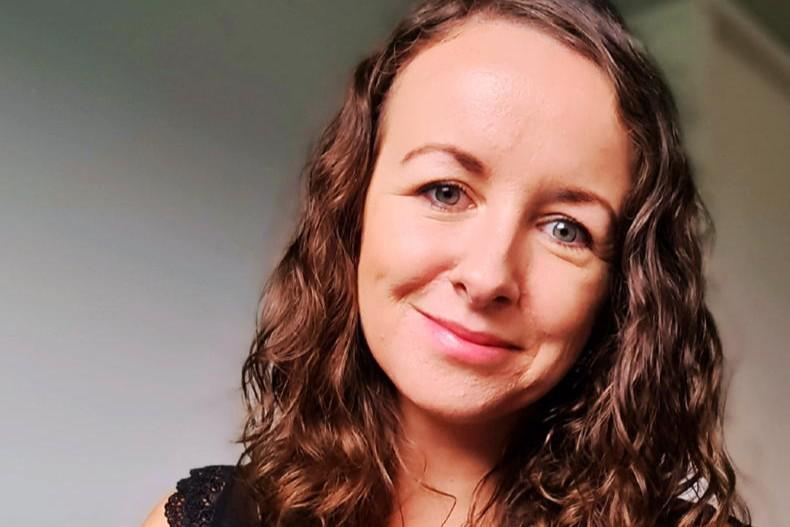Irish meat manufacturing company Kepak, which has been in operation for over 40 years, recently partnered with Technological University of Dublin (TU Dublin) in an effort to drive innovation in the culinary science space.
The partnership has seen Kepak invest €250,000 into the university, which, among other things, will see the launch of a research programme focusing on meat optimisation, sustainability, packaging, health and nutrition.
Kepak sells both fresh and prepared products and this partnership will help it identify future markets and better serve its retail and food service client base.
Kepak currently boasts a turnover of €1.5bn and employs over 4,500 people.
Starting off as a family-run butcher’s shop in 1966, it now operates 12 manufacturing facilities throughout Ireland and the UK, with sales offices in Europe and Asia.
We need to be partnering up with these types of experts
“We see TU Dublin as experts in their field, from a culinary science perspective,” says Kepak’s director of innovation Elaine Bourke.
“We need to be partnering up with these types of experts because we’re living in a dynamic and changing world. With what is to come (from a climate perspective), we need to be future-ready.”
Culinary science innovation
The TU Dublin research programme will eventually take on four PhD students. The research focus will be on culinary innovation in regards to consumer trends and environmental awareness. Kepak’s investment has also contributed to TU Dublin’s “Transforming Tomorrow” campaign, which has financed facilities in their culinary science department. This includes a new lecture theatre and demonstration kitchen, two training restaurants, 11 teaching kitchens, two sensory labs, a food processing hall and 18 food science labs.
TU Dublin have put a lot of the investment into their campus
“The culinary science aspect – that is something we’re really excited about,” Elaine says. “TU Dublin have put a lot of the investment into their campus. Being able to test foods in the sensory lab, for example, ensures we can put the consumer first and go even further [with different product offerings].
“By having access to this cohort of students; we can work with future culinary leaders and innovators – and they can understand what we’re doing with these products. Working with chefs and stress-testing our concepts, in this way, enables essential troubleshooting.”
Consumer trends
Bord Bia’s 2021 Consumer Lifestyle Trends report identified five macro trends and how they have affected the way consumers eat, drink and purchase foods. These include health and wellbeing, responsible living, community and identity, engaging experiences and life logistics. To put it plainly, many of today’s consumers are interested in making nutritious and environmentally sustainable food and drink choices, but they are time poor and also require innovative convenience food options.
If you’re innovating, you’re doing it for a reason
Elaine says these are some of the things Kepak aims to address, both within their food science research and their product line.
“We base everything around consumer trends; it drives everything we do,” she explains. “If you’re innovating, you’re doing it for a reason – you’re fixing a problem for the future. Consumers are looking for more transparency.
“In terms of health and wellness, there is a huge amount of positive nutrition in our products today – but what does the future look like? How do we educate consumers around food? We supply meat – how do we convert that into an emotional experience for consumers?”
Food waste
Elaine also says there is scope for Kepak to limit the amount of waste from their prepared food products by finding other ways to utilise what might normally be wasted.
“For example, one of the areas we [focus] on are slow-cooked meats,” she says.
“A problem we have identified there is; we slow cook and sell the product and then the consumer discards the cook-out (juices). That’s actually full of nutritional goodness – how do we transform that to make it more palatable and useable for the consumer?”
PhD Programme
Of the four PhD students Kepak and TU Dublin’s research programme will take on, one has already begun – a part-time student and Kepak employee, Ciara Kenny – who is researching the health and sustainability of burger-type products. The project aims to meet consumer demands for sustainable protein foods which are beneficial for health and wellbeing, and which can be produced sustainably.
“The others (PhD candidates) are yet to be scoped,” Elaine says. “Again, their research will try to deliver for us in the future around key consumer trends.”
In late 2021, when Kepak’s investment was first announced, TU Dublin president Professor David Fitzpatrick said the partnership was coming at an opportune time as their culinary science researchers plan to aim their focus on “ecological solutions to global challenges, such as waste reduction and food shortages.”
“Kepak’s generous support of the University’s Transforming Tomorrow capital campaign is a contribution towards the cutting-edge facilities required by our researchers to develop innovative products that meet the consumer demand for food that is ethically and environmentally produced,” he added.
Read more
Leaving Cert 2022: what is really best for Irish students?
Free agricultural journalism training course returns this summer
Irish meat manufacturing company Kepak, which has been in operation for over 40 years, recently partnered with Technological University of Dublin (TU Dublin) in an effort to drive innovation in the culinary science space.
The partnership has seen Kepak invest €250,000 into the university, which, among other things, will see the launch of a research programme focusing on meat optimisation, sustainability, packaging, health and nutrition.
Kepak sells both fresh and prepared products and this partnership will help it identify future markets and better serve its retail and food service client base.
Kepak currently boasts a turnover of €1.5bn and employs over 4,500 people.
Starting off as a family-run butcher’s shop in 1966, it now operates 12 manufacturing facilities throughout Ireland and the UK, with sales offices in Europe and Asia.
We need to be partnering up with these types of experts
“We see TU Dublin as experts in their field, from a culinary science perspective,” says Kepak’s director of innovation Elaine Bourke.
“We need to be partnering up with these types of experts because we’re living in a dynamic and changing world. With what is to come (from a climate perspective), we need to be future-ready.”
Culinary science innovation
The TU Dublin research programme will eventually take on four PhD students. The research focus will be on culinary innovation in regards to consumer trends and environmental awareness. Kepak’s investment has also contributed to TU Dublin’s “Transforming Tomorrow” campaign, which has financed facilities in their culinary science department. This includes a new lecture theatre and demonstration kitchen, two training restaurants, 11 teaching kitchens, two sensory labs, a food processing hall and 18 food science labs.
TU Dublin have put a lot of the investment into their campus
“The culinary science aspect – that is something we’re really excited about,” Elaine says. “TU Dublin have put a lot of the investment into their campus. Being able to test foods in the sensory lab, for example, ensures we can put the consumer first and go even further [with different product offerings].
“By having access to this cohort of students; we can work with future culinary leaders and innovators – and they can understand what we’re doing with these products. Working with chefs and stress-testing our concepts, in this way, enables essential troubleshooting.”
Consumer trends
Bord Bia’s 2021 Consumer Lifestyle Trends report identified five macro trends and how they have affected the way consumers eat, drink and purchase foods. These include health and wellbeing, responsible living, community and identity, engaging experiences and life logistics. To put it plainly, many of today’s consumers are interested in making nutritious and environmentally sustainable food and drink choices, but they are time poor and also require innovative convenience food options.
If you’re innovating, you’re doing it for a reason
Elaine says these are some of the things Kepak aims to address, both within their food science research and their product line.
“We base everything around consumer trends; it drives everything we do,” she explains. “If you’re innovating, you’re doing it for a reason – you’re fixing a problem for the future. Consumers are looking for more transparency.
“In terms of health and wellness, there is a huge amount of positive nutrition in our products today – but what does the future look like? How do we educate consumers around food? We supply meat – how do we convert that into an emotional experience for consumers?”
Food waste
Elaine also says there is scope for Kepak to limit the amount of waste from their prepared food products by finding other ways to utilise what might normally be wasted.
“For example, one of the areas we [focus] on are slow-cooked meats,” she says.
“A problem we have identified there is; we slow cook and sell the product and then the consumer discards the cook-out (juices). That’s actually full of nutritional goodness – how do we transform that to make it more palatable and useable for the consumer?”
PhD Programme
Of the four PhD students Kepak and TU Dublin’s research programme will take on, one has already begun – a part-time student and Kepak employee, Ciara Kenny – who is researching the health and sustainability of burger-type products. The project aims to meet consumer demands for sustainable protein foods which are beneficial for health and wellbeing, and which can be produced sustainably.
“The others (PhD candidates) are yet to be scoped,” Elaine says. “Again, their research will try to deliver for us in the future around key consumer trends.”
In late 2021, when Kepak’s investment was first announced, TU Dublin president Professor David Fitzpatrick said the partnership was coming at an opportune time as their culinary science researchers plan to aim their focus on “ecological solutions to global challenges, such as waste reduction and food shortages.”
“Kepak’s generous support of the University’s Transforming Tomorrow capital campaign is a contribution towards the cutting-edge facilities required by our researchers to develop innovative products that meet the consumer demand for food that is ethically and environmentally produced,” he added.
Read more
Leaving Cert 2022: what is really best for Irish students?
Free agricultural journalism training course returns this summer









SHARING OPTIONS